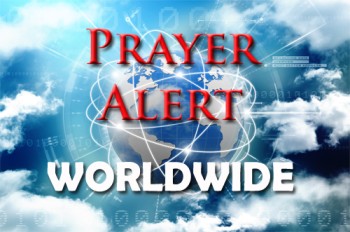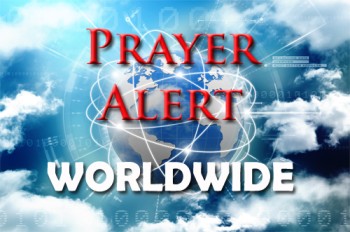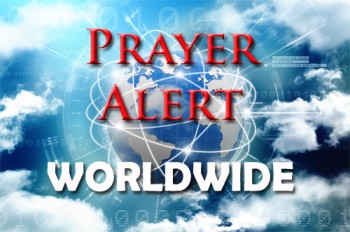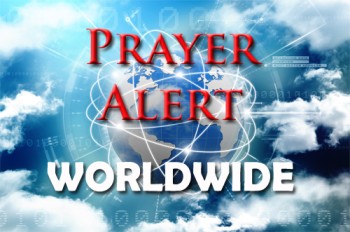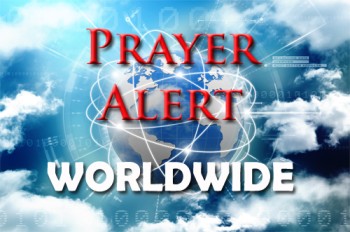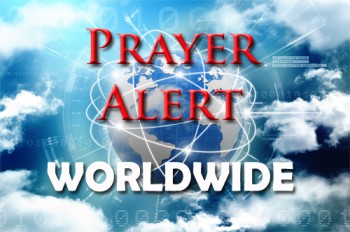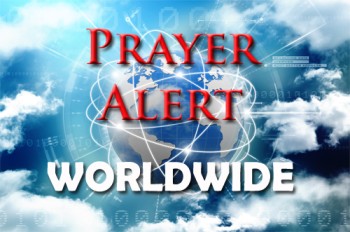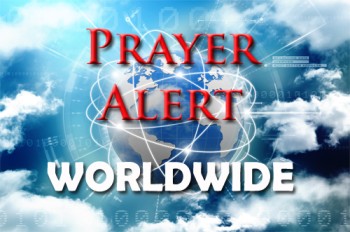Displaying items by tag: ceasefire
Sudan: RSF announces humanitarian truce after army rejects ceasefire proposals
The devastating civil war in Sudan continues, with renewed international pressure for a ceasefire. The RSF, locked in conflict with the army since April 2023, has announced a three-month humanitarian truce. It says the move is in response to global diplomatic efforts, including initiatives from the Quad mediators (the USA, Saudi Arabia, the UAE, and Egypt). However, deep distrust remains. Army chief Abdel Fattah al-Burhan rejected the US-backed proposal, calling it biased due to the UAE’s involvement and accusing the mediators of favouring the RSF. There are persistent allegations that the UAE is secretly arming the RSF, though it denies the claims. The conflict’s political roots remain unresolved: proposals have suggested transitions toward civilian rule without either military faction holding power - an idea the army has strongly opposed. In October the RSF seized the key Darfur city of El-Fasher after a relentless siege which sparked warnings of crimes against humanity and genocide. The warring parties have so far violated every ceasefire agreement.
Gaza: ceasefire fragile after Israeli airstrikes kill 100+
On 29 October, Hamas reported that Israeli airstrikes in Gaza had resulted in at least 104 Palestinian deaths, including 46 children. Israel's defence minister accused Hamas of an attack in Gaza which killed an Israeli soldier, and of breaching the terms on returning deceased hostages' bodies. Although Hamas denied involvement in the attack, asserting its commitment to the ceasefire, the IDF said it had targeted what it described as ‘terror targets and terrorists’, killing numerous individuals, including thirty armed group commanders. The strikes caused significant destruction, hitting homes, schools, and residential blocks: each side has accused the other of ceasefire violations. Despite the violence, Donald Trump downplayed the likelihood of renewed hostilities, supporting Israel's right to retaliate. The conflict shows the fragile nature of the ceasefire and the ongoing volatility in the region – which has also been highlighted by the call by Amnesty International to investigate whether a US airstrike on Yemen in April was a war crime. See
Gaza: what we know so far about ceasefire agreement
After three days of indirect talks in Egypt, Donald Trump announced that Israel and Hamas have ‘signed off’ on the first phase of his twenty-point peace plan to end the Gaza war. The agreement, expected to be approved by Israel’s cabinet, includes an immediate ceasefire and the release of all remaining living hostages - around 20 people - within 72 hours. Israel will begin withdrawing troops to a line controlling roughly 53% of Gaza, while Hamas will return the bodies of 28 dead hostages. In exchange, Israel will release about 250 Palestinian prisoners serving life sentences and 1,700 Gaza detainees, but not including key figures like Marwan Barghouti. Hundreds of aid trucks will begin entering Gaza daily to address famine conditions. Later phases of the plan envision Gaza’s demilitarisation, temporary rule by Palestinian technocrats under an international ‘Board of Peace’ chaired by Trump, and eventual transfer to a reformed Palestinian Authority - points that remain deeply contentious between Israel and Hamas. Earlier in the week, on 7 October, 30,000 gathered in Tel Aviv in an emotional event marking the second anniversary of Hamas’s attacks: see
India / Pakistan: ceasefire, with conflicting claims of ‘victory’
Following a deadly attack in Indian-administered Kashmir on 22 April, military tensions between India and Pakistan escalated rapidly, culminating in cross-border missile strikes and drone attacks. The conflict nearly led to all-out war, but a US-announced ceasefire on 10 May halted the fighting. Both nations claim victory: India points to deep strikes into Pakistan’s Punjab region, while Pakistan touts the downing of Indian jets, confirmed by foreign sources. Analysts suggest that both sides gained and lost strategically. India achieved a rare reach into Pakistan’s heartland for the first time since 1971, while Pakistan successfully internationalised the Kashmir issue, welcoming external mediation. The ceasefire’s legitimacy is disputed: India insists it was bilateral, while Pakistan credits the USA. Talks between military officials have followed, but Narendra Modi has warned the ceasefire is only a ‘pause’. It would not take much for hostilities to flare up again.
Ukraine: Putin announces three-day ceasefire
Vladimir Putin has announced a new three-day unilateral ceasefire, to run from 8 to 10 May, coinciding with Russia’s World War II commemorations. It follows a previous thirty-hour Easter ceasefire, which critics say Moscow repeatedly violated. The Kremlin frames these brief pauses as humanitarian gestures; Ukrainian officials argue that if Russia truly sought peace, it would halt hostilities immediately. Foreign minister Andrii Sybiha called for a thirty-day truce instead. Observers question whether Putin’s moves are sincere peace efforts or merely an attempt to influence Donald Trump, who has recently voiced frustration with both Russia and Ukraine. Trump has criticised Putin for continuing attacks on civilian areas and floated harsher sanctions. When in March he proposed a thirty-day ceasefire, Ukraine agreed, but Russia did not. In another development, the much-anticipated natural resources agreement between the USA and Ukraine has been signed: see
Gaza: Israel resumes fighting after ceasefire agreement collapses
Israel has launched a ‘limited ground operation’ to retake the Netzarim corridor in Gaza, escalating the conflict after the ceasefire agreement with Hamas collapsed. The corridor, previously used by Israeli forces, had been vacated as part of the truce. Meanwhile, a Bulgarian UN worker has been killed, and five others, including a British man, were wounded in a strike on a UN guesthouse in Gaza. Israel denies responsibility, saying that an initial investigation found ‘no connection’ between the strike and the Israel Defence Forces (IDF). The UN has condemned the attack on its personnel. The Gaza health ministry says that at least 436 people have been killed since Israel launched the fresh wave of airstrikes, though Israel disputes the accuracy of those figures, maintaining that it targets militants, not civilians.
Ukraine: Russia considers US ceasefire proposal, claims it is regaining Kursk region
US officials have arrived in Moscow to discuss a proposed thirty-day ceasefire between Russia and Ukraine. Special envoy Steve Witkoff hopes to persuade Russia to agree to the deal, which Ukraine accepted earlier this week after talks in Jeddah. The Kremlin confirmed discussions were planned but gave no details. US secretary of state Marco Rubio said that the ceasefire decision now rests with Russia, while Donald Trump warned of financial consequences if Russia rejects peace. Meanwhile, Russia claims to have recaptured 86% of the Kursk region, which Ukraine invaded last year. Vladimir Putin, visiting the area, has reportedly ordered a full military push to reclaim all lost territory. Events this week show a remarkably swift turnaround from a week ago: see
Gaza: hostages’ bodies handed over
On 26 February, the bodies of four Israeli hostages were handed over by Hamas, without ceremony, in exchange for Palestinian prisoners. This marks the final exchange under the first phase of the Gaza ceasefire deal, leaving 59 hostages still in captivity with no clear timeline for their release. The truce’s future remains uncertain, as Hamas signals readiness for talks on the second phase, aiming for an end to the war and further prisoner exchanges. Benjamin Netanyahu faces political pressure to resume military operations. Meanwhile, Gaza’s humanitarian crisis deepens, with severe shortages of food, medicine, and shelter. As negotiations stall, families of hostages demand immediate action, urging leaders to secure their return. Meanwhile, Donald Trump has released a bizarre video of his vision for the golden future of the Gaza strip: see
Gaza: future of ceasefire in the balance
The Gaza ceasefire agreement between Israel and Hamas, in effect since 19 January, is at risk of collapsing. Efforts by Egypt and Qatar to mediate continue, as a senior Hamas delegation arrived in Cairo to salvage the truce. Benjamin Netanyahu has warned that if hostages are not released by Saturday, intense military operations will resume. The situation has been further complicated by Donald Trump's recent proposal to remove Gaza’s Palestinian residents, which has emboldened Israel’s far-right leaders. Some Israeli ministers are now demanding a total military takeover of Gaza. Meanwhile, Israeli security officials argue that breaking the ceasefire would endanger hostages still held in Gaza. Families of captives and displaced Gazans fear renewed conflict. Breaking news: Hamas has said it will release three hostages on 15 February as agreed, although earlier it had threatened to cancel the ceasefire, claiming that Israel had failed to fulfil key commitments.
Gaza: closer to a ceasefire deal?
After months of deadlock, there are new signs that Israel and Hamas could be moving closer to a Gaza ceasefire and hostage release deal. The USA, Qatar, and Egypt are reporting greater willingness by both sides to conclude a deal. Talks are reportedly in a decisive stage. Israel’s defence minister has indicated that they are close to an agreement, though challenges remain, including far-right Israeli cabinet opposition and Hamas's conditions. A three-phase plan proposes releasing civilian and women hostages, with Israeli troop withdrawals and a mechanism for displaced Gazans to return. Subsequent stages include freeing remaining hostages and a broader troop withdrawal. Of 96 hostages in Gaza, 62 are believed to be still alive; a hundred others have been freed through negotiation or military action. The negotiations have been given a new push by Donald Trump’s election; he has warned that a ceasefire deal should be reached before he takes office, because otherwise ‘it’s not going to be pleasant’.
